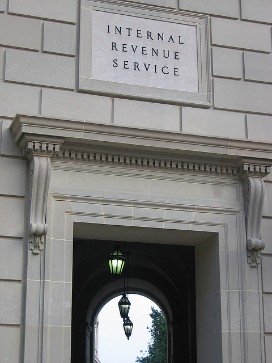
Medtronic Deal Illustrates Need for Tax Reform
Medtronic, the second-largest maker of medical devices behind Johnson & Johnson announced its decision to buy Ireland-based Covidien for $42.9 billion, becoming the latest in a series of corporations using a strategy known as inversion to avoid paying U.S. taxes on foreign profits.
A recent failed bid by pharmaceutical giant Phizer to buy U.K.-based AstraZeneca for similar reasons ignited debate within the U.S. on how best to address the problem of corporate inversion and transfer pricing, which has long been a cat-and-mouse game between the IRS and domestic corporations. With the U.S. corporate tax rate sitting at 35%, the highest of any developed nation, companies are constantly looking for ways to shift profits abroad to more tax-friendly jurisdictions. Medtronic’s move to reincorporate in Ireland, where the corporate tax rate is 12.5%, has the dual advantage of reducing its tax rate going forward while giving it access to $20.5 billion in untaxed foreign profits which would otherwise be subject to the 35% U.S. corporate income tax.
Since 2012, 14 companies have used inversion to avoid paying U.S. taxes, and a recent congressional panel estimates that the U.S. will lose $19.5 billion in tax revenue over the next 10 years if there is no change to the existing laws. There has been a sharp divide within Congress on how best to stop the bleeding. A proposed bill by Michigan Democrat Carl Levin would make it much more costly for companies to reincorporate overseas. Under Levin’s bill, shareholders of the non-U.S. company would need to own at least 50% of the combined company, while the current threshold sits at 20%. Others advocate a more sweeping reform of the tax code. In an ASP-sponsored event, Robert Pozen outlined a plan to tax all foreign profits at 17%, at which point they can be transferred anywhere in the world. The revenue generated would be used to finance a 5% reduction in the corporate tax rate.
U.S. corporations currently have close to $2 trillion in offshore earnings that are unlikely to be repatriated because of U.S. tax disincentives. Temporary tax holidays such as the one instituted by Congress in 2005 would help to bring a lot of this money back to the U.S., but lasting measures that get at the root of the problem will be much more effective in the long term. Other than international tax lawyers, who are paid a premium by corporations to get the IRS out of their hair, Americans only stand to lose by watching as companies choose to flee the U.S. tax jurisdiction.
Medtronic is now the largest corporation ever to invert, and if nothing is done you can be sure others will follow suit. Corporate tax reform has now become a matter of economic security, and Congress needs to get serious about doing everything it can to ensure tax revenue stays in the U.S.





